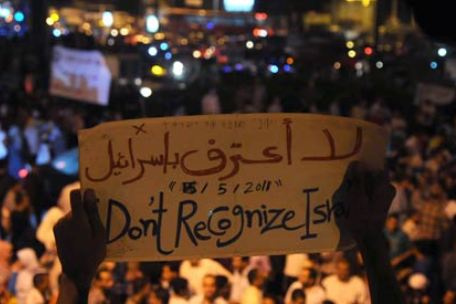Egyptian Protests a Model for Other Arab Countries

Six months after the victory of the Egyptian nation over the despot Husni Mubarak, the citizens’ anger has been directed towards Israel. The demonstrations in front of the Israeli Embassy in Cairo after the border shooting by Israeli forces which killed 5 Egyptian police officers, saw the presence of Egyptians from all political stripes, from the Muslim Brotherhood to seculars, from nationalists to leftists, and the ordinary citizens. The protests have been described as the most fervent after the anti-Mubarak protests.
Public pressure has forced the transitional government to urge Israel for an apology, even speaking of calling their ambassador from Tel Aviv and severing ties. Such words had not been heard from Egyptian officials in forty years. For four decades, Egypt had turned into Israel's most innocuous neighbor. It was Egypt’s silence which emboldened Israel to attack Lebanon and occupy its capital Beirut in 1982. The same disposition among the Egyptians gave Tel Aviv the chance to engage in two devastating, though fruitless, wars with Hezbollah and Hamas in 2006 and 2008. But the story is different today. No more does a corrupt tyrant rule Egypt, one which provided the Zionists with cheap gas.
Cairo is going to retrieve its regional status step by step and turn into the leading Arab state it was. The inherent capabilities of this country, suppressed by the former regime, are undeniable. Now the citizens have taken the affairs at their own hands, becoming assertive enough to mount the walls of the Israeli embassy and bring down the country’s flag.

